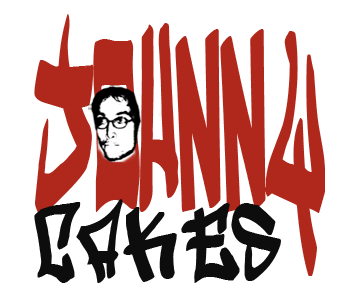
Dear Steve,
Fifteen million dollars is a lot of money.
It looks like this:

You make
fifteen million dollars every time
- 100,000 iPhones are sold.
- 50,000 fourth-generation Ipods are sold.
- You, with your personal networth of 4.9 billion dollars, sit on your ass, eating seaweed salad and planning out the rest of our lives.
With
fifteen million dollars, you could buy:
- Sealand.
- 3,750 more Segways for Woz, and a lifetime supply of Nathan’s famous hot dogs.
- Exactly one talking car for the Pixar campus parking lot.
- (True, only one. But then again, it *is* a talking car, and they’re even more rare than electric cars!)
Fiften million dollars also buys about 200 terabytes of bandwidth from Akamai. And because of iWaste, those terabytes of bandwidth are being purchased with money that could buy iGet iPhones for 100,000 iPeople.
But, wait! You need to spend lots of money on bandwidth, for “peak traffic”. What if millions across the globe decide to download Mean Girls as a treatise, a pledge in support of Lohanesque pacifism? What if???
So you keep the server farms iWasting kilowatts like candy.
Well, allow me to iRetort.
Time to bust out the abacus, Mr. Jobs. Let’s go over some iTunes Store math:
According to the BBC, Apple has sold
“1.5 billion songs, and tens of millions of TV shows and movies.”
The average film is about two gigabytes. The average TV show is about 700 megabytes, or 70% of a gigabyte. The average song is about 5 megabytes.
So let’s go over how many terabytes are needed to transfer iTunes material.
- Music: one and a half billion songs x 5 MB = 7,500 Terabytes
- TV Shows: 25 million TV shows x .7 GB = 17,500 Terabytes
- Movies: 25 million movies x 2 GB = 50 million GB, or 50,000 Terabytes
75,000 terabytes = A #*#&&@ TON OF BANDWIDTH.
Apple’s bandwidth, using pricely Akamai servers, costs about $200 per terabyte. A lot of that money is wasted, because of the need to always be ready for the mythic International Downloading Sesh.
Anyways,
- Seventy-five thousand terabytes x $200 = 15,000,000
Fifteen million dollars.
For fifteen million dollars, you could buy the world a Coke. Or at the very least, a Shasta grape-flavored soda.
So how can Apple’s fifteen million dollars be saved?
Or better yet, how can a hundred thousand iPeeps get their new iPhones for free bucks?
Using P2P distribution, of course.
The iTunes store now uses a client-server setup. The client (your computer) asks the server for the new episode of Battlestar Galactica (Not Starbuck! Anyone but Starbuck!!!) or the new Amerie song or whatever whatever. And everyone downloads the same files from the same electricity-hungry servers.
It’s not just boring. It’s wasteful.
With only one person in the P2P network, downloads would be as fast as the client-server setup. In fact, the client-server setup is just a really weaksauce P2P network with you, yourself, and you.
As a P2P network grows in size, the download speed increases by magnitudes, and bandwidth is used as efficiently as possible.
And some of the newer P2P systems like the Swoosh have all kinds of crazy as-yet unexplored features like prediscovery and a versatile API.
I insist, Mr. Jobs, that you don’t sleep on it. Save your cash. Save our strained electricity grids.
Lindsay would want it that way.
-Johnny Cakes
Johnny Cakes is the newest member of the Swoosh entourage. He is our Downloader in Residence, and Ranter in Chief.
This entry was posted
on January 23, 2007 at 11:45 pm and is filed under General.
You can follow any responses to this entry through the RSS 2.0 feed.
You can leave a response, or trackback from your own site.

 You make fifteen million dollars every time
You make fifteen million dollars every time
 RSS Feed
RSS Feed
Comments
Your “peak bandwidth” argument doesn’t hold water. Akamai only charges Apple for the bandwidth they actually use. Not for some hypothetical peak. That’s one of the major arguments for using a service like Akamai in the first place — you’re amortizing the cost of peak traffic among many different sites that all share the same infrastructure, instead of everyone having lots of extra servers that site idle most of the time.
Yes, P2P might be cheaper. But that hasn’t really caught on yet with the big players. Maybe soon, but not yet.
According to http://docs.info.apple.com/article.html?artnum=304277#faq5
“How large is the average movie?
A 2-hour movie is about 1.5 GB.”
I think this makes your figures about 12,500 TB and $2.5m off, altho I agree with the basic premise.
Without questioning the overall assumption, the numbers need to be adjusted a bit.
According to http://www.apple.com/pr/library/2007/01/09itunes.html there have been 50 million TV shows downloaded, and 1.5 million movies (this is backed up by Disney bragging about 500K movies sold in November). They also now claim to have sold 2 billion songs.
1.5 million movies * 1.5 GB = 2.14 petabyte
In my experience (i.e. looking at the file size of downloaded shows in iTunes) the average TV show is a bit smaller — mine range from 450 to about 220MB. Let’s call it 350.
50 million shows * 0.35 GB = 16.7 petabytes
Finally, the songs:
2 billion songs * 0.005 GB = 9.54 petabytes.
This adds up to about 28 petabytes.
Still, though, even at that figure, it represents a pretty substantial amount of traffic — and a pretty substantial expense.